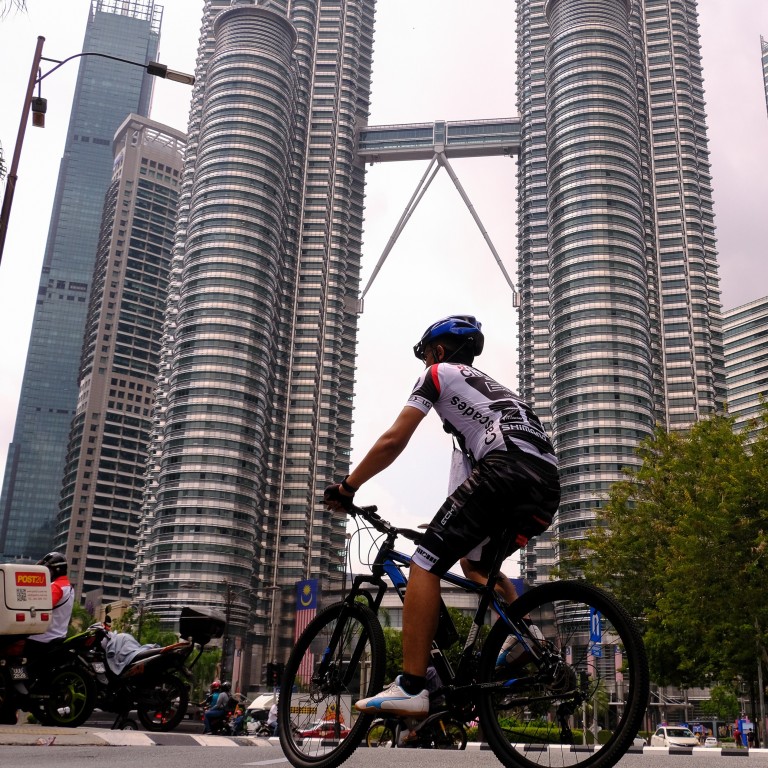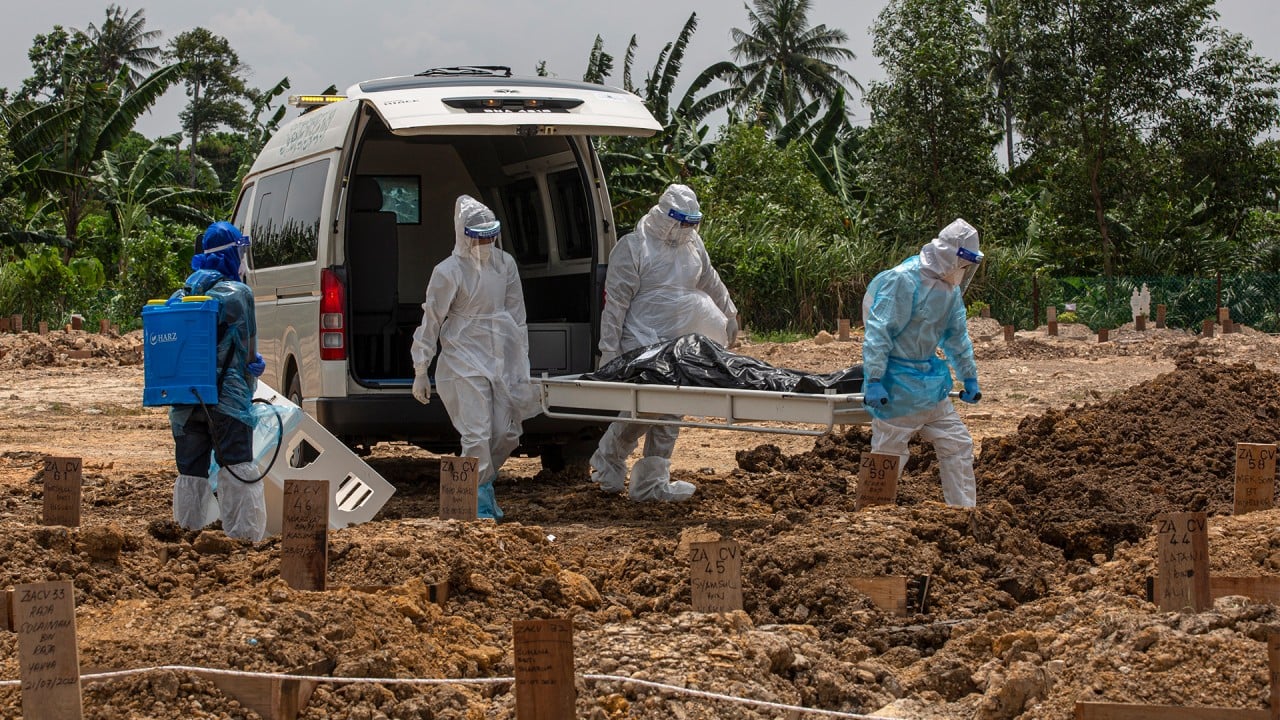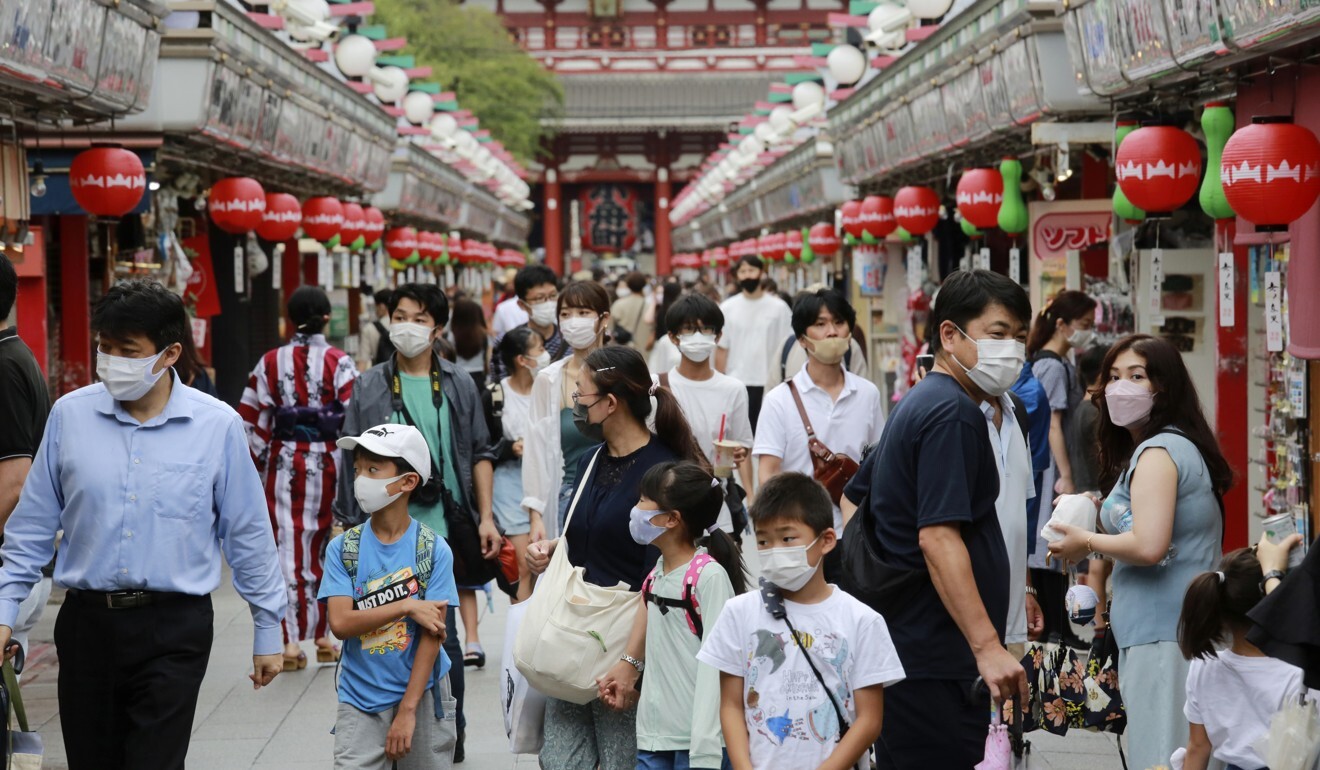
Coronavirus: Malaysia sees record cases despite lockdown; Southeast Asia needs help securing vaccines, Red Cross says
- The record high of 22,242 infections comes despite a lockdown in place since mid-May that has caused the economy to nosedive
- Meanwhile, South Korea wants to have 70 per cent of its population vaccinated by the end of September, prime minister said
The record high comes despite a lockdown in place since mid-May that has caused the economy to nosedive, with a 2-per-cent contraction reported during the second quarter.
The overall relative death toll remains far lower than in Europe or North America, though Malaysia is by a distance reporting the most new cases per day in Southeast Asia, according to official numbers collated by the University of Oxford’s Our World in Data.
Wednesday saw 293 virus-related deaths confirmed by the ministry, taking the death toll to over 13,000.
Most people who test positive for the virus do not become unwell, according to the ministry, which on Tuesday said that over 98 per cent of people listed among the day’s new cases displayed mild or no symptoms.
Almost a third of the population has received two doses of vaccine, according to ministry figures announced on Tuesday.

02:01
Malaysia’s Covid-19 case toll tops 1 million as nation sees record day of infections
Southeast Asia needs more help securing vaccines: Red Cross
The region escaped the worst when the pandemic erupted last year, but in recent weeks has seen the highest deaths globally, as soaring infections push fragile health care systems to the brink and expose sluggish vaccination roll-outs.
“This Covid-19 surge driven by the Delta variant is claiming a tragic toll on families across Southeast Asia and it’s far from over,” Alexander Matheou, Asia Pacific Director, International Federation of Red Cross and Red Crescent Societies, said in a statement.
It noted that most Southeast Asian countries including Vietnam, Thailand and Indonesia have been posting record Covid-19 infections or fatalities.
Covid-19 vaccines: is fractional dosing a solution for supply-short Southeast Asia?
Yet while countries like Canada, Spain and Britain have fully vaccinated more than 60 per cent of their people, and the United States more than 50 per cent, Southeast Asian countries are well behind.
By contrast, Indonesia and Philippines, the most populous countries in Southeast Asia, have only fully vaccinated about 10-11 per cent of their people, while Vietnam sits at below 2 per cent.
“In the short-term, we need much greater efforts by richer countries to urgently share their millions of excess vaccine doses with countries in Southeast Asia,” said Matheou, adding that vaccine companies and governments also needed to share technology and boost production.
“These coming weeks are critical for scaling up treatment, testing and vaccinations, in every corner of all countries in Southeast Asia,” he said, adding that there must be a target for vaccination rates of 70-80 per cent.
Cases jump across Japan
Record Covid-19 cases sprang up across Japan on Wednesday, media said a day after the government expanded emergency measures to fight a wave fuelled by the infectious Delta variant that has put the medical system under threat.
The western prefecture of Osaka reported a record 2,296 cases. Neighbouring Hyogo, the central prefecture of Aichi, and Fukuoka prefecture in the south all set records of more than 1,000 new infections, media said.
Tokyo’s 5,386 daily cases were just off last Friday’s all-time high.
Prime Minister Yoshihide Suga extended a state of emergency in the capital and other regions on Tuesday while expanding the measure to seven more prefectures, to counter a spike in cases.
The emergency covering nearly 60 per cent of Japan’s population will now run until September 12, beyond its previous expiry date of August 31.

Tokyo was the epicentre of a fifth wave of infections since the pandemic began. More than 80 per cent of its critical care beds are occupied, stoking concern that hospitals nationwide will fill up as the virulent strain spreads.
The emergency measures mean restaurants are being asked to close early and stop serving alcohol. The government is also looking to curb visitors to department stores and other crowded sites as it works to add hospital beds and vaccines.
The government needs to prod individuals to pay closer heed to infection controls, top health adviser Shigeru Omi said on Tuesday, suggesting that laws could be revised to toughen lockdown measures.
Even without legal changes, the government could tame the outbreak by boosting testing and isolating patients at hotels, said infectious disease expert Kenji Shibuya.
“They could have done much more effective measures to control Covid under the current law,” said Shibuya, a former director of the Institute for Population Health at King’s College London.
“The Japanese public has been complying so well till now.”
Qantas makes shots mandatory
The national carrier is one of the first major Australian firms to mandate vaccines for employees, saying the rule would also apply to its budget offshoot Jetstar.
Pilots, cabin crew and airport staff must be fully vaccinated by November 15, with other staff members given until March 31 next year.
“Having a fully vaccinated workforce will safeguard our people against the virus but also protect our customers and the communities we fly to,” Qantas CEO Alan Joyce said in a statement.
Sydney’s coronavirus lockdown has hit the vulnerable harder than the wealthy
Qantas announced its new rule after Australia’s conservative government said it would not make vaccines mandatory but would leave businesses to implement their own policies.
The airline said a staff survey found 89 per cent were willing to be vaccinated or already had been, while 4 per cent were unwilling or unable.
“It’s clear that vaccinations are the only way to end the cycle of lockdowns and border closures and for a lot of Qantas and Jetstar employees that means getting back to work again,” Joyce said.
The airline, which has thousands of employees furloughed due to pandemic travel disruptions, has been a vocal advocate of vaccines as it attempts to revive its business.
Singapore jails Briton for not wearing mask
A Singapore court sentenced a British man to six weeks in prison on Wednesday, local media reported, after he repeatedly breached coronavirus protocols by refusing to wear a face mask in public.
Benjamin Glynn, 40, was found guilty on four charges over his failure to wear a mask on a train in May and at a subsequent court appearance in July, as well as causing a public nuisance and using threatening words towards public servants.
Glynn was earlier subjected to a psychiatric assessment ordered by the judge as a result of his conduct and remarks in court.
On Wednesday he asked the court to drop what he called “unlawful charges” and asked for his passport to be returned so that he could go back to Britain to be with his family, according to media outlet CNA.
Nine Britons charged over Singapore yacht party
It quoted the judge as telling Glynn that he was “completely misguided” in is belief that he was exempt from Singapore’s laws on wearing masks.
Glynn represented himself in court and Reuters’ calls and text messages to his phone were unanswered on Wednesday.
The Asian business hub is well-known for its enforcement of strict rules and has jailed and fined others for breaking Covid-19 regulations. Some foreigners have had their work permits revoked for rule breaches.
South Korea targets 70 per cent vaccination
Prime Minister Kim Boo-kyum, at the forefront of the government’s pandemic policy, on Tuesday said South Korea would keep funnelling aid to small businesses hurt by strict social distancing measures aimed at stemming a record Covid-19 wave powered by the Delta variant. Kim indicated Seoul would do all it can to avoid a lockdown.
“If we were to be ambitious, we could reach a 70 per cent rate for second shots by the end of October or at least mid-November,” said Kim, who took office earlier this year and is a key player in virus policy for President Moon Jae-in until his single, five-year term ends in about nine months.
Will South Korea’s vaccines become as important as its semiconductors?
Daily new virus cases started to surge in July with the emergence of the Delta variant while the vaccine roll-out was slowed by supply shortages and shipment delays. Inoculations have sped up in recent weeks with about 20 per cent of the population fully vaccinated, up from 15 per cent last week. Previously, it took six weeks to rise from 10 per cent to 15 per cent.
But South Korea lags behind Japan, which started its inoculations at about the same time and now has 37 per cent of its population fully vaccinated. Singapore leads Asia with 73 per cent fully vaccinated, according to data compiled by Johns Hopkins University.
South Korea’s once lauded virus containment strategy, which operated without a lockdown, is facing a major challenge as the number of daily new coronavirus cases has touched records in recent days. Kim indicated the country could weather the current storm without turning to lockdowns.
“One of the reasons why we think Korea has succeeded in prevention is because we didn’t turn to extreme measures like lockdowns,” he said, adding the approach has prevented economic damage.
New Zealand case numbers rise
New Zealand reported six new cases of Covid-19 on Wednesday, the day after it entered a snap lockdown following its first community transmitted infection in almost six months.
Prime Minister Jacinda Ardern told a press conference the six new cases were all linked to a case in Auckland announced on Tuesday.
Tuesday’s case was the first community transmitted case of Covid-19 found in the country since February 28.
One of the six new cases is a nurse, while another is a secondary schoolteacher.
Health officials are still searching for a link to the country’s border, but the initial case had been “genomically linked” to the outbreak in Australia’s New South Wales, Ardern said.
“Now the job we have to do is find out how and when it got here,” she said.
‘Zero-Covid’ New Zealand outlines plan for reopening borders
New Zealand entered a snap lockdown after Tuesday’s case was detected – meaning all schools and businesses closed, with only supermarkets, pharmacies and medical centres allowed to open.
Masks would now also mandatory for anyone aged over 12 when at any essential service, Ardern said.
“I know Delta is making people feel more anxious and more afraid and it is true that we will see more cases, but we can get on top of this, just like we have every other time, if we do it together.”
The lockdown will last until at least Saturday for the entire country.
New Zealand, with a country of 5 million, has reported about 2,570 cases of Covid-19 during the pandemic, with 26 deaths.
Reporting by Reuters, DPA, Agence France-Presse, Bloomberg
